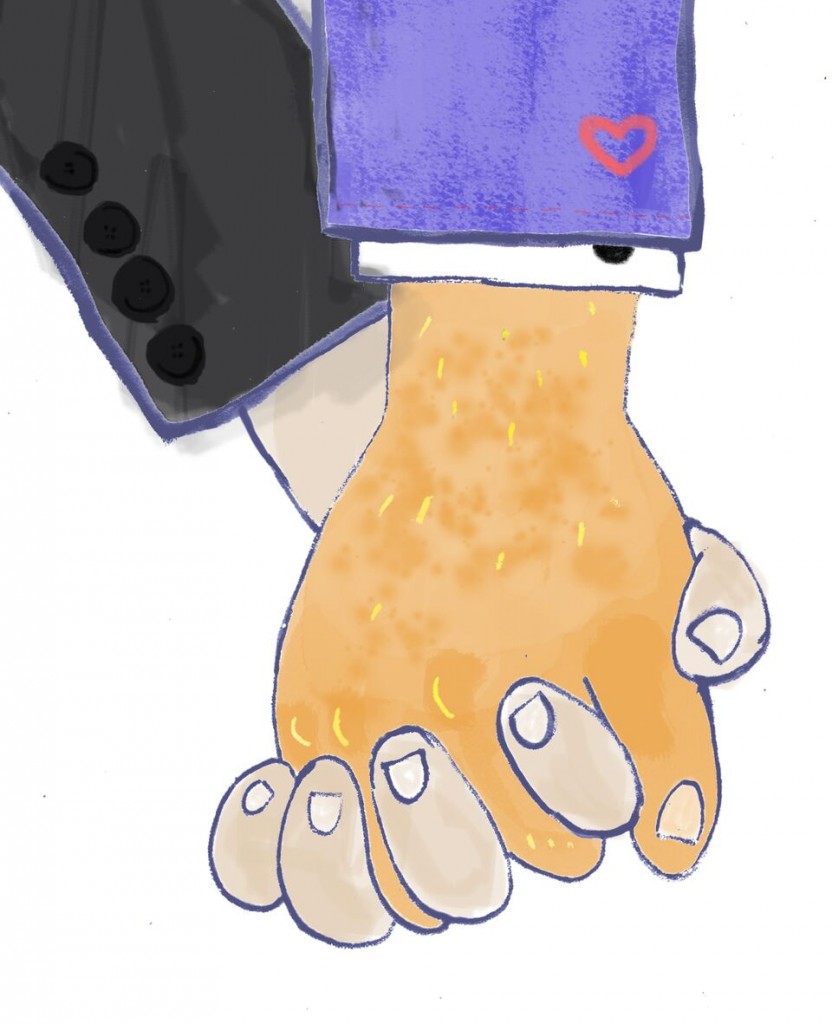 Study shows detrimental effects of food porn on society
Study shows detrimental effects of food porn on society
By Sharon Miki, Humour Editor
It seems innocent enough, at first: you’re surfing the net and a curvy little dish catches your eye. It looks so hot—you want to see more; before you know it, you’ve been cruising the web for hours, feasting your eyes on juicy, juicy porn. Food porn. Seems harmless, right? Wrong.
Surprising new research from the Institute for Morality and All Things Well and Tame (IMATWAT) reveals that the type of images people commonly refer to as “food porn”—which, according to Wikipedia, is a “glamourized spectacular visual presentation of cooking or eating”—is having an adverse impact on our society and culture.
“Most people think that there can’t be any harm in just looking at pictures of food on Tumblr,” says lead researcher, Jonsey McGee. “It feels like a victimless crime, and it can satisfy their cravings. But, unfortunately, our data cooks up a very different and dark dish.”
Indeed, IMATWAT’s study—which was funded by a coalition of non-photogenic foods including oatmeal, stroganoff, and barley—shows that prolonged exposure to food porn images has a long-term impact on humans’ ability to appreciate real food. In fact, that study shows that people who view food pornography more than 13 times per week were 89 per cent less likely to give their compliments to the chef and 59 per cent more likely to skip dinner for dessert out of pure boredom.
“Even worse, when habitually exposed to food porn, people are finding themselves unable to commit to lunch, because they know they can always go home and look at yummier-looking lunches online. What they don’t realize is that those pornographic lunches are heavily photoshopped and just aren’t realistic ideals of lunch,” says McGee. “They’re waiting for this unrealistically luscious lunch to walk into their lives and satisfy them, and it just isn’t coming. As a result, people are getting really hungry!”
Men, according to the study, are especially susceptible to succumbing to the negative influences of food porn.
“More and more, we’re noticing that men are starting to treat their steaks just like pieces of meat,” explains McGee.
The easy access and abundance of food porn online may also be contributing to a weird, privileged attitude amongst eaters. The study shows that food porn-consumers tend to be bad cooks, and are often lazy and entitled in the kitchen.
“We see this amazing food online, and we just get so used to seeing it there looking amazing and perfectly lit. As a result, when we’re at home cooking, we expect our food to magically get to a really delicious place without putting in much effort. In the end, few people are satisfied with this approach. We talked to a number of people that just sort of ‘faked it’ in the kitchen, and then retired to their rooms to video clips of cheesecake on their own.”
So, is there a solution to this food-porn depravity?
“Turn off the Internet and go back to basics in the kitchen,” says McGee. “I suggest making a lovely casserole. Sure, it might not be perfect—but at least it will be real.”


